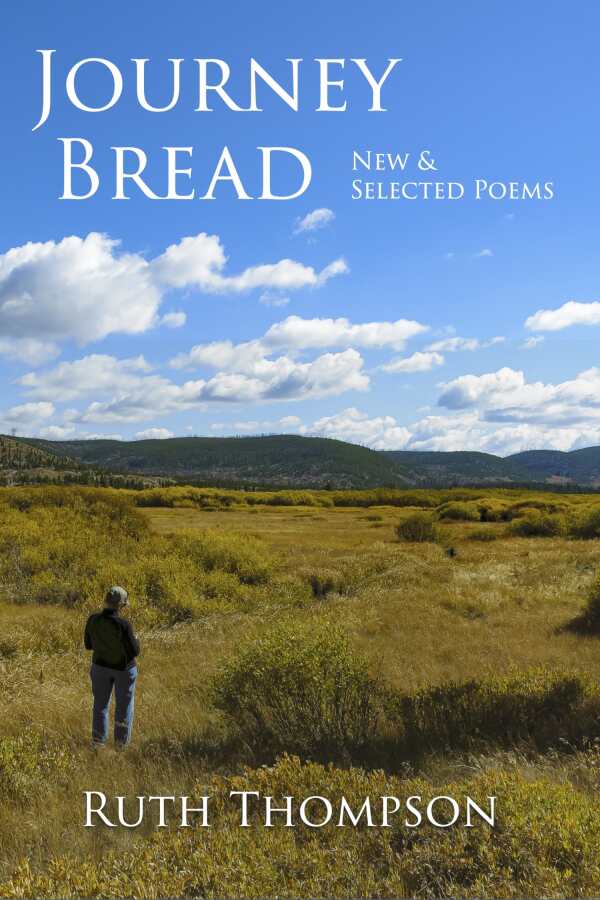
Journey Bread
New & Selected Poems
Wisdom and wonder permeate the decade’s worth of poems collected in Journey Bread.
Ruth Thompson’s insightful poetry collection Journey Bread is provocative in celebrating the stages of contemporary women’s lives.
Divided into eight parts, the book moves in chronological order, with poems honoring childhood, marriage, and childbearing years as well as the liberation of older years. Deep compassion is bestowed upon the young alongside the proffering of wisdom learned through identification with the natural world and spirited investigations of myths and legends.
Some of the book’s older poems are said to have been “published too quickly”; herein, they are revised. Still, individual poems vary in the self-confidence of their voices, and this is most apparent in their imagery. It is often fresh, dynamic, earthy, and spiritual—both potent and clear. Still, explanatory lines are appended to some images, resulting in awkward dilutions. In one poem, for example, a woman collects orphaned African violets: “She did nothing to make them bloom. / She gave them a place to rest. / To stop flowering if they felt like it.” The poem’s final lines note that “she liked them just the way they were,” weakening the powerful image of a woman who knows to leave violets to their own devices. In the book’s most mature entries, the images cast their own light and shadows. In “Look How She Is Laughing,” a dying woman laughs with her great-grandchildren and her “laughter catches fire / and look! – there she is again”—a gorgeous amplification of the inheritance she leaves behind.
The book contains free-verse poems as well as poems that reflect more traditional forms. In the latter, the stanzas are arranged, and rhymes and meter are deployed, to enrich subject matters, as in “The Plant Wife,” a fabulistic cautionary tale in rhyming couplets. “Plant you a wife,” the poem begins, “content to get / water or light as you see fit,” a wife “content to grow / as you may prune her.” Like instructions in fairy tales and fables, these imperatives end up having fatal consequences.
Wisdom also permeates the poems, some of which humble younger selves as mature speakers take responsibility for the parts they played in their own tribulations. In “Epiphany,” for example, the speaker notes, “But it was I who set the planets in his hair!” And “Penelope Returns” says, “When the hero comes back from her journey, she is in the greatest danger of all,” not least because her old stories are waiting at home, just like the self she left behind that “slides up around her and snaps / to.” Significant intellectual queries are raised about the inhabited and invisible worlds, too. What might happen, one poem wonders, if “the thousand thousand names of god … will fall in love. Conjoin.” Elsewhere, “The White Queen” interrogates aging and dementia with sharp, inquisitive lines that craft “dropping off” as perhaps a “sign of expansion.” In “Crazing,” wrinkles and memory become like a ceramic glaze that can crack to reveal the true self.
A brilliant poetic retrospective, Journey Bread includes lines to nourish the mind, heart, and imagination.
Reviewed by
Michele Sharpe
Disclosure: This article is not an endorsement, but a review. The publisher of this book provided free copies of the book and paid a small fee to have their book reviewed by a professional reviewer. Foreword Reviews and Clarion Reviews make no guarantee that the publisher will receive a positive review. Foreword Magazine, Inc. is disclosing this in accordance with the Federal Trade Commission’s 16 CFR, Part 255.
